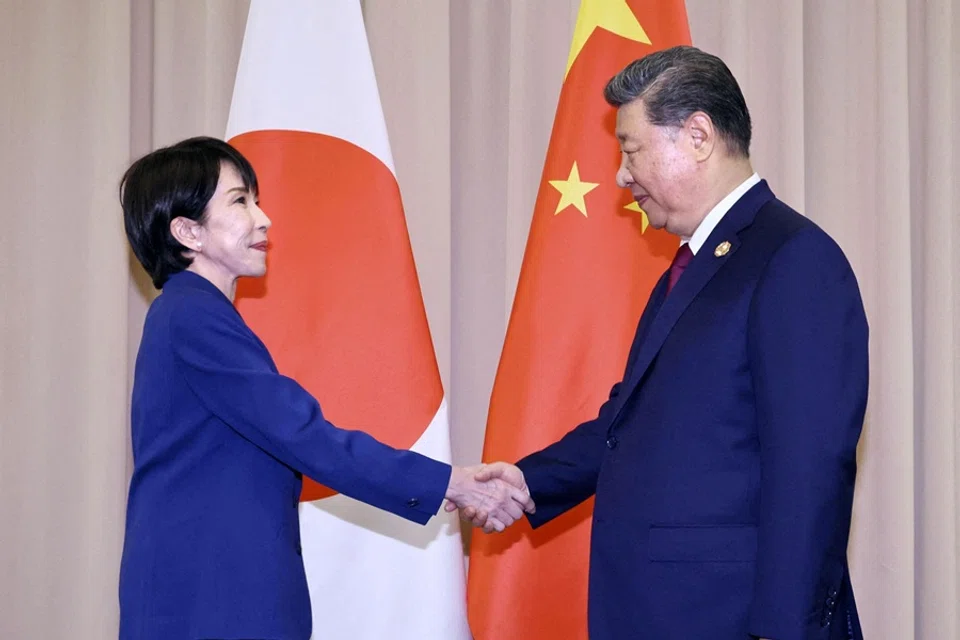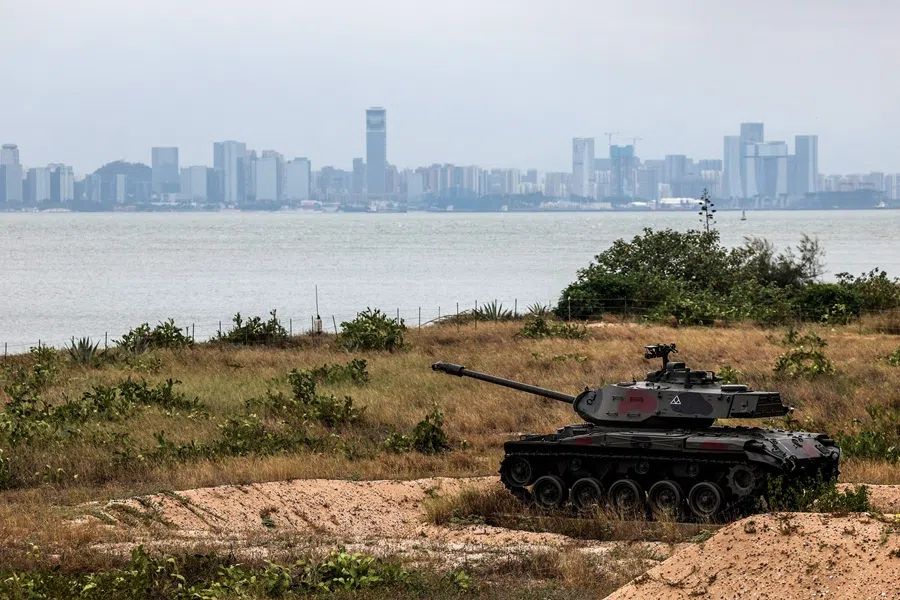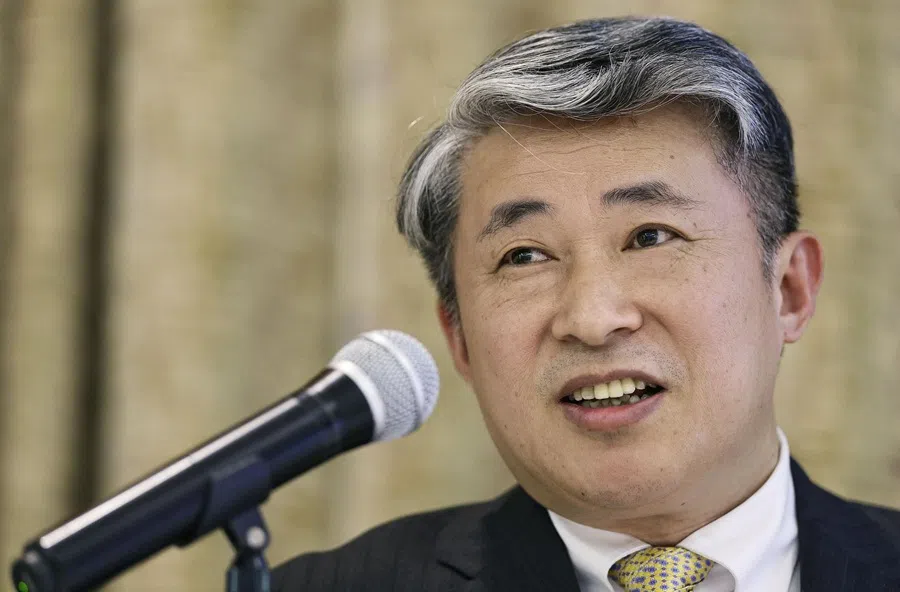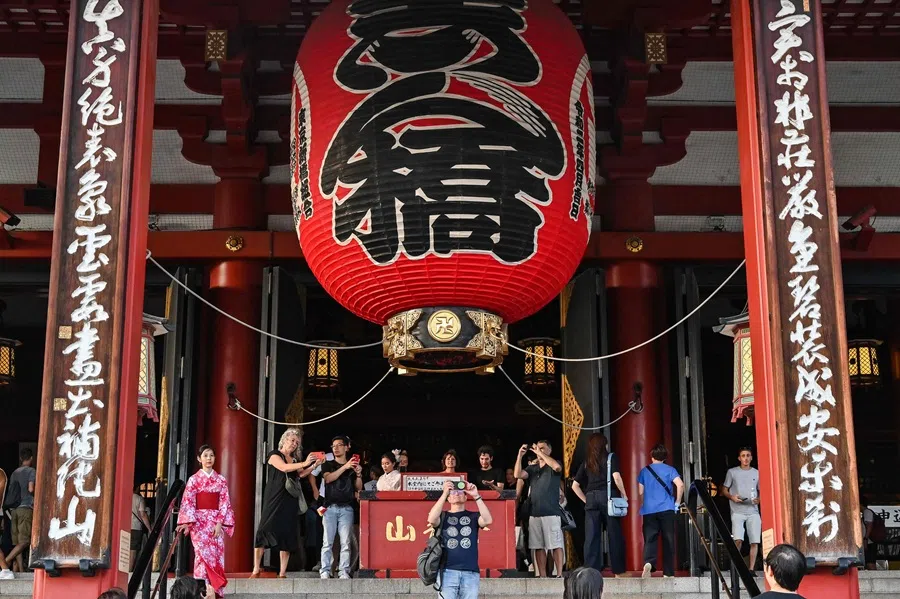A wolf warrior returns: How a single post shook China–Japan relations
A single online outburst from a Chinese diplomat has reignited tensions with Japan and revived memories of Beijing’s “wolf warrior” era. As both sides spar over Taiwan, the veneer of calm after recent talks has quickly begun to crack. Lianhe Zaobao China news editor Yang Danxu takes a look at the recent diplomatic spat.

Less than a month into her term and barely two weeks after her meeting with Chinese President Xi Jinping in Gyeongju, South Korea, Japanese Prime Minister Sanae Takaichi has already found herself in two rounds of heated diplomatic spats with China. The situation escalated further when a Chinese diplomat’s comment about “decapitation” caused a major uproar.
Japan’s assertiveness on Taiwan issue
At a parliamentary session on 7 November, Takaichi stated that an emergency in Taiwan involving the use of military force would constitute a “survival-threatening situation” for Japan, thus meeting the conditions under Japan’s security framework for exercising the right of collective self-defence.
Japanese prime ministers have traditionally avoided mentioning Taiwan directly when discussing scenarios that could trigger a military response. Takaichi, however, not only openly stated that “a Taiwan contingency is a Japan contingency” but also raised the possibility of Japan’s military involvement in the Taiwan Strait. This prompted a strong backlash from Beijing.
Xue Jian, China’s consul general in Osaka, wrote a post in Japanese on X. While translations by various media outlets differ slightly, the gist of it was: “The dirty neck that sticks itself in must be chopped off.”
At a regular press conference on 10 November, Chinese foreign ministry spokesperson Lin Jian fired off three pointed questions: “What signal is the Japanese leader trying to send to ‘Taiwan independence’ separatist forces? Is Japan up to challenge China’s core interests and stop its reunification? Where exactly does Japan want to take its relations with China?”

Before that, a Chinese diplomat in Japan had already hit back on social media. Xue Jian, China’s consul general in Osaka, wrote a post in Japanese on X. While translations by various media outlets differ slightly, the gist of it was: “The dirty neck that sticks itself in must be chopped off.”
There remain strong calls among the Chinese masses for a forceful reunification with Taiwan, while Washington’s stance on whether it would defend Taiwan has become increasingly ambiguous after Donald Trump took office. At this juncture, any assertiveness by Japan towards the Taiwan issue would provoke a strong reaction from the Chinese public, a sentiment reflected in Xue’s extreme remarks.
China’s reaction
Although he later deleted the controversial post, Xue again rebuked Japan on X, saying that Japan’s stance in considering a Taiwan contingency as threatening its own survival is a fatal path chosen by “foolish politicians”.
Xue’s remarks caused a strong stir in Japan. On 10 November, a Japanese government spokesperson condemned the comments as “highly inappropriate” and lodged protests with Beijing. Some Japanese politicians went further, urging the government to declare Xue persona non grata and expel him from the country.
On the international stage, Xue’s remarks were also criticised as undiplomatic, drawing renewed scrutiny of China’s “wolf warrior” diplomacy.

On the international stage, Xue’s remarks were also criticised as undiplomatic, drawing renewed scrutiny of China’s “wolf warrior” diplomacy. The controversy over the new Japanese prime minister’s Taiwan remarks quickly shifted into a condemnation of a Chinese diplomat’s comments.
Some media insiders privately noted that Xue’s “decapitation” rhetoric echoes the hawkish style of former Chinese Foreign Ministry spokesperson Zhao Lijian, who once warned members of the Five Eyes alliance to “be careful not to get poked in the eye”, remarking that “the wolf warriors are back”.
During the latter part of Trump’s first term, China–US relations deteriorated sharply. Following the outbreak of the Covid-19 pandemic, China came under heightened scrutiny and was often misconstrued and stigmatised. In response, Beijing stepped up its efforts to defend its position, moving from a strategy of “maintaining a low profile and biding time” to one of “daring to fight”. Instead of its usual moderate, cautious and conservative diplomatic approach, China adopted a tough stance to counter accusations and defend its position, no longer shying away from direct verbal confrontation.
Some Chinese diplomats, especially the younger generation, were no longer keeping a low profile, and instead directly engaging in heated exchanges with foreign officials on Western social media platforms.
Some Chinese diplomats, especially the younger generation, were no longer keeping a low profile, and instead directly engaging in heated exchanges with foreign officials on Western social media platforms. The controversial “wolf warrior” label was thus slapped onto Chinese diplomacy.
Wolf-warrior style of the past
While this approach had somewhat pandered to domestic emotional needs, particularly the rising nationalist sentiment, the confrontational posture triggered diplomatic pushback, negatively impacting China’s international image. Chinese scholars warned against the “domestication of foreign propaganda” and expressed concerns that the diplomatic space was being hijacked by populist sentiments, and called for a shift away from the wolf warrior image.
In the last couple of years, China’s diplomatic style has changed, with the wolf warrior element and aggressive rhetoric gradually declining. The Economist used an AI model to analyse 16,000 press conference exchanges by China’s Ministry of Foreign Affairs since 2018, assessing a “wolf warrior index” from 0 to 1. According to the report, the ministry’s responses became noticeably more assertive from 2019, with aggressiveness rising from below 0.3 in 2018 to over 0.45 in May 2021. However, the index has steadily declined since mid-2022, reaching a level of cordiality earlier this year that has not been seen in nearly six years.
Japanese media interpreted this as a “death threat” against the Japanese prime minister.

Hence, the wolf-warrior-style decapitation rhetoric appears somewhat jarring. Chinese public opinion perceived that Xue’s intent was to warn against Japanese military intervention in the Taiwan Strait, suggesting that it would be decisively “cut off”. However, Japanese media interpreted this as a “death threat” against the Japanese prime minister.
This controversy has overshadowed the core issue of the recent diplomatic clash, which stemmed from Takaichi’s meeting with Taiwanese representative Lin Hsin-i at the APEC summit and, just a few weeks later, crossing Beijing’s “red line” on Taiwan-related matters.
... she softened her stance by saying that she was merely responding to a hypothetical worst-case scenario. She added that she would refrain from such responses in the future.
Fragile relations
Amid the controversy, Takaichi responded on 10 November stating that there was no intention to retract her remarks, but she softened her stance by saying that she was merely responding to a hypothetical worst-case scenario. She added that she would refrain from such responses in the future.
Save for historical issues, Taiwan remains the most sensitive topic between China and Japan. While Takaichi’s handling of the Taiwan issue may reveal a lack of diplomatic maturity, the blunt response from Chinese diplomats has likewise escalated tensions. The series of incidents has dispelled the conciliatory atmosphere created by the leaders’ meeting in Gyeongju — the fragile nature of China–Japan relations remains evident.
This article was first published in Lianhe Zaobao as ““斩首论”下的外交风波”.





![[Big read] When the Arctic opens, what happens to Singapore?](https://cassette.sphdigital.com.sg/image/thinkchina/da65edebca34645c711c55e83e9877109b3c53847ebb1305573974651df1d13a)